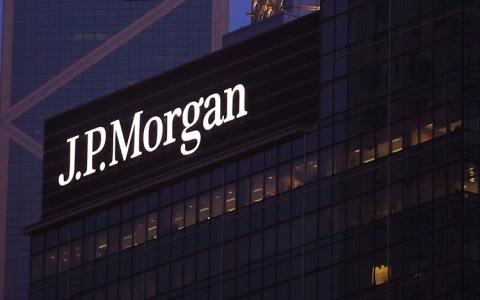
Through a pandemic that sparked an economic recession and financial volatility, America’s 10 largest companies kept getting bigger by every conceivable metric.
The 19th annual Forbes Global 2000 list ranks the world’s largest public companies with composite scores of market value, sales, profits and assets captured during the 12 months ended April 16. For the biggest companies in the United States, all those statistics have grown larger. America’s top 10 public companies recorded combined sales exceeding $2.2 trillion (up 29% from last year), profits of more than $316 billion (up 17%), and assets greater than $13.2 trillion (up 5%). Their combined market value also ballooned 87% over the past year to roughly $9.6 trillion.
JPMorgan Chase held onto its spot as America’s largest public company for the third consecutive year. The behemoth bank’s total stock return soared more than 81% to about $153 per share in the year ending April 16, outpacing the 52% total return of the S&P 500 over that same period. The New York-based bank was approved to dole out $29 billion in Paycheck Protection Program loans, which were intended to help small businesses impacted by Covid-19—the most of any financial institution. Its assets have grown approximately 17.5% in the last year to $3.7 trillion, pushing JPMorgan up one spot on the global ranking of biggest publicly traded companies to No. 2, usurping the state-run China Construction Bank.
Coming in again at No. 2 in the U.S. is Berkshire Hathaway, billionaire Warren Buffett’s Omaha-based holding company. Despite suffering $49.7 billion in losses when the pandemic began in the first quarter of 2020—the largest loss in its history—the company has rebounded, posting an $11.7 billion profit for the quarter ended March 31. At age 90, Buffett also named a successor last month: Greg Abel, the current CEO of Berkshire’s energy division.
Apple landed at No. 3 overall on the U.S. list, after weathering supply-chain issues as its Chinese factories briefly suspended operations in the early months of 2020. The Cupertino, Calif., tech titan traded spots with Bank of America, now ranked No. 4. Additionally, Apple was No. 1 globally in terms of both profit ($64 billion) and market value ($2.2 trillion).
Google parent Alphabet, Microsoft, Citigroup and Wells Fargo also landed in the top 10, with rankings that were similar to past editions of the Global 2,000 list. But two new companies managed to get into the top ten list.
As many Americans chose to avoid in-person shopping during the pandemic, companies focused on ecommerce benefitted. With Jeff Bezos stepping down as CEO in February 2021, Amazon vaulted to No. 5 in the U.S. overall, up from No. 13 in 2020. The Seattle-based company was No. 2 in the world in terms of sales, which ballooned by some 30% in the last year to $386 billion. Further growth appears likely: Amazon’s share of domestic ecommerce sales will increase from 39.8% in 2020 to 40.4% in 2021, outpacing competitors, estimates eMarketer.
Thanks to a strong online business, Walmart climbed onto the leaderboard as No. 9 in the U.S., up from No. 11 last year. Walmart topped the global sales list, beating even Amazon, with $559 billion of revenue. The Bentonville, Ark.-based retailer is also America’s largest employer, with more than 1.6 million workers. Though known for its nearly 5,000 brick-and-mortar U.S. stores, Walmart’s domestic ecommerce business grew some 79% in the fiscal year ended January 31, per its latest earnings report.
The last year proved less kind to two longtime U.S. leaders, both headquartered in Texas. AT&T tumbled to No. 106 from No. 5 in 2020, dragged down by a nearly $5.2 billion net loss. In the fourth quarter, the company disclosed a $15.5 billion write-downof its struggling DirectTV satellite business. And as oil prices plunged during the pandemic’s height, ExxonMobil—America’s largest oil company—fell sharply to No. 113 from No. 7 last year in the U.S. The gigantic oil company, born out of an $82 billion merger in 1999, ended four consecutive quarters in the red and recorded a $22 billion net loss in the process. “The past year presented the most challenging market conditions ExxonMobil has ever experienced,” CEO Darren Woods wrote in a February earnings statement.
This year’s Global 2000 ranking offers a glimpse into how America’s biggest companies have fared over the course of the pandemic. It remains to be seen whether changes to consumer preferences will outlast widespread vaccination, and which companies will thrive or fall as a result. But Jamie Dimon, the CEO of the top-ranked U.S. company on the Global 2000 list, is predicting sustained economic expansion.
“With all of the stimulus spending, potential infrastructure spending, continued quantitative easing, strong consumer and business balance sheets and euphoria around the potential end of the pandemic, we believe that the economy has the potential to have extremely robust, multi-year growth,” Dimon recently told JPMorgan Chase’s shareholders.
This article originally appeared on Forbes.



